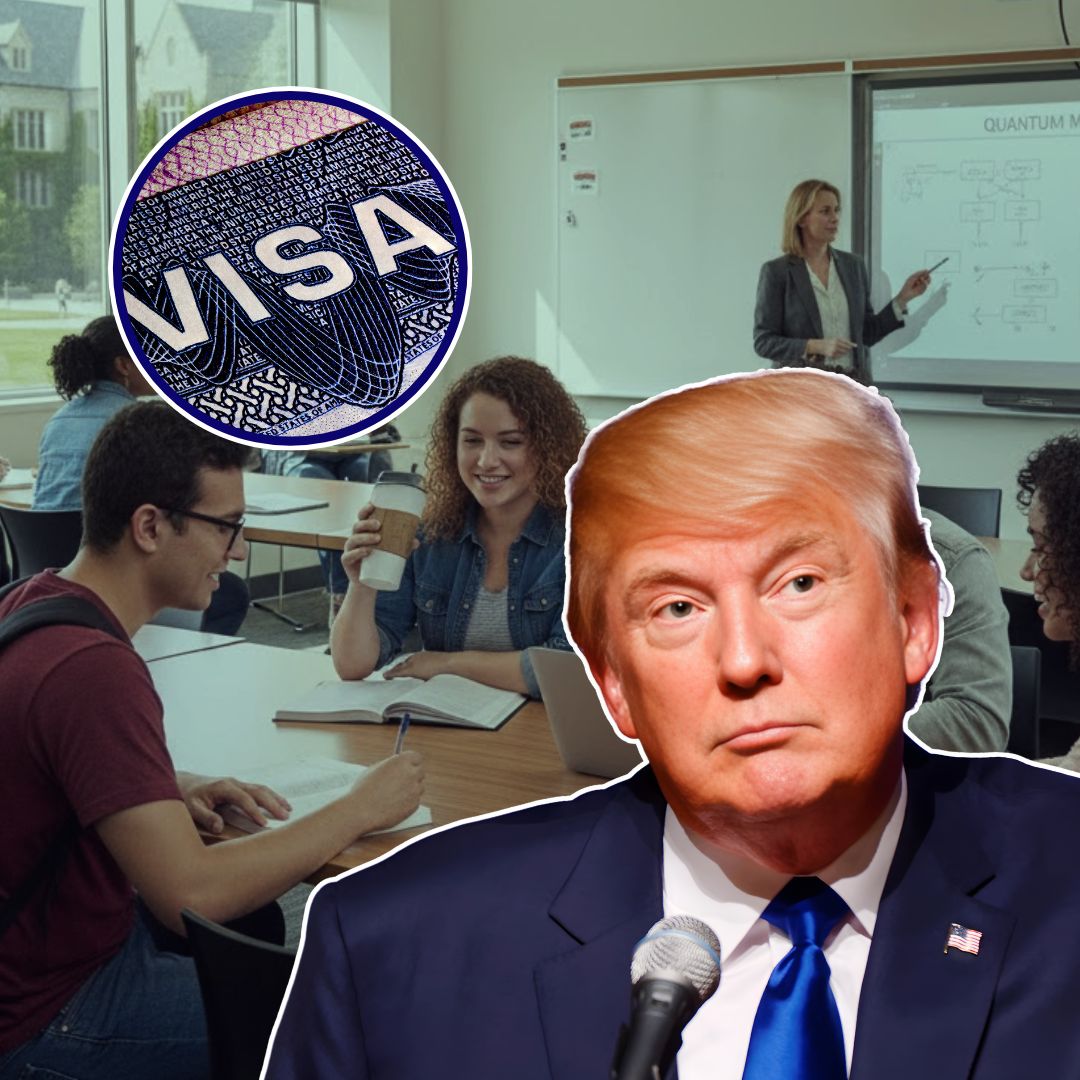US President Donald Trump recently defended the policy of allowing international students to study in the United States, describing it as a “good for business” practice that is essential for the financial health of American higher education institutions.
Speaking in an interview on Fox News, Trump cautioned that a significant reduction in foreign students, especially from China and other key countries, could lead to half the colleges in the US going out of business. He stressed that foreign students contribute trillions of dollars to the American economy and pay more than double the tuition fees of domestic students. He also defended H-1B visa and said that U.S. requires lacks talents, and needs to import certain talents.
However, these remarks stand in contrast with his administration’s tightening of visa restrictions, including revocations and deportations of students involved in certain activism, showing a complex and sometimes contradictory approach to foreign student policies.
Economic Lifeline or Business Model?
President Trump framed the presence of international students in the US as primarily a business necessity rather than a purely educational or humanitarian issue. “I want to see our school system thrive, It’s not that I want them, but I view it as a business.” he said, referring to the financial dependence of many universities on international tuition fees.
Several smaller colleges and historically Black colleges and universities (HBCUs) rely heavily on these fees to sustain their operations. Trump rejected suggestions that reducing foreign students would open more spots for Americans, warning that such moves would financially devastate many institutions.
His administration has proposed a “Compact for Academic Excellence,” which caps international undergraduate enrolment at 15% and restricts no more than 5% from any single country, a policy opposed by leading universities fearing enrollment restrictions.
He also defended the H-1B visa program, acknowledging the necessity of bringing in skilled foreign talent to fill specialized roles that domestic workers cannot easily take up without extensive training. In an interview with Fox News, Trump stated, “We also do have to bring talent into the country,” and countered claims that America has enough skilled workers by saying, “No, you don’t… You don’t have certain talents.”
He emphasised that some jobs, particularly in manufacturing and defence, require complex skills that cannot be fulfilled by simply taking people off the unemployment line. Despite announcing a sharp increase in the application fee for new H-1B visa petitions to $100,000 earlier this year as part of a broader immigration crackdown, Trump’s remarks signal a softened stance recognizing the ongoing need for immigrant expertise in critical industries.
NOW – Trump says that H1B immigrants are necessary since there are not plenty of talented Americans.
— Disclose.tv (@disclosetv) November 12, 2025
Laura: "We have plenty of talented people here!"
Trump: "No, you don't. No, you don't… No, you don't have… You don't have certain talents and you have to… People have to… pic.twitter.com/xEfZRIbKPd
Policy Contradictions and Visa Crackdown
Despite Trump’s defence of international students from an economic perspective, the administration has aggressively tightened visa rules. Thousands of student visas have been revoked, often affecting students involved in protests. Stricter visa interviews and social media scrutiny have created an environment of uncertainty for international students.
Earlier this year, a temporary suspension of student visa interviews was ordered, later lifted with enhanced vetting protocols. While data show that overall international student numbers have remained relatively stable, many students, including large contingents from India, face difficulties.
This paradox reveals a clash between economic interests and security or political considerations.
The Logical Indian’s Perspective
The debate around foreign students in America highlights a larger tension between viewing education as a commercial enterprise and as a profound means for cultural exchange and mutual understanding.
The Logical Indian believes that while economic viability is critical, education must also uphold values of empathy, inclusivity, and peace. Policies shaped by fear or political expediency risk transforming universities from spaces of open dialogue into arenas of exclusion and division.
Constructive dialogue and policies which protect academic freedom and promote coexistence are vital in an interconnected world.
BREAKING: 🇺🇲🇨🇳 Trump confirms that importing hundreds of thousands of foreign students, particularly from China, is a 'MAGA' position, stating that it's necessary; otherwise, 'historically Black' colleges and universities would go out of business pic.twitter.com/0lTeuSbDep
— Mega Geopolitics (@MegaGeopolitics) November 11, 2025













